Finalist, 2016 Pat Lowther Memorial Award
Titled after the Latin term for “unknown land”—a cartographical expression referring to regions that have not yet been mapped or documented—Terra Incognita is a collection of poems that creatively explores various racial discourses and interracial crossings buried in history’s grand narratives. Set against the similarities as well as incongruities of the Canadian/American backdrop of race relations, Terra Incognita explores the cultural memory and legacy of those whose histories have been the site of erasure, and who have thus—riffing on the Heraclitus’s dictum that “geography is fate”—been forced to redraw themselves into the texts of history. Finally, Terra Incognita is a collection that delves into the malleable borders of identity and questions what it means to move physically and spiritually, for our bodies to arrive and depart, our souls to relocate and change their scope.
“There is a true poet at work here, and there is a rare fineness of feeling on display in these poems. A delightful gathering by an exciting new voice.”
—Lorna Goodison
“Adebe DeRango-Adem knows the fire on water that was the slave trade, and names—has got to name—the bloody acts and ruddy facts of history’s oppressors. The “Terra Incognita” that she explores? Slave cemeteries, African villages, Canadian locales of snow-job erasures and razings. Here’s a poetry that unveils unspeakable histories and unspoken hardships. It is Yeatsean jazz, Nietzschian blues—transformative and best read with both eyes wide open, eh?”
—George Elliott Clarke
“Adebe DeRango-Adem’s poems blend a reverential tone of prayer with the maroon, insurgent spirit of Louverture. DeRango-Adem speaks with the force that would undo centuries of racial injustice and the gentle grace that looks first for forgiveness and familial embrace. These verses document bodies that texts have left unmapped, bodies whose “blood lines are a mix / of what has been washed away / and what was once considered a stain.” Enter into her startling kind, “bastardette” vision, where “all angels / of history are also half-caste.”
—Sonnet L’Abbé
“Terra Incognita is a breath-taking lyrical travelogue into the mythical terrain of post-race. In this timely collection, DeRango-Adem laments the incomplete mapping of our contemporary racial topography and charts a new horizon with poems that seduce as they elucidate. Her verses explore the complex landscapes of identity and tensions between memory and meaning. An important collection from an extraordinary poet, Terra Incognita takes us on a journey to a deeper understanding of what it means to be a human-being in the twenty-first century.”
—Andrea Thompson
“Terra Incognita gives urgent voice to the difficult grace of multiplicity. Adebe DeRango-Adem writes through waves of angelic intransigence, her stained verse-light submerged in the stormy waters of an inability to forget.”
—Charles Bernstein

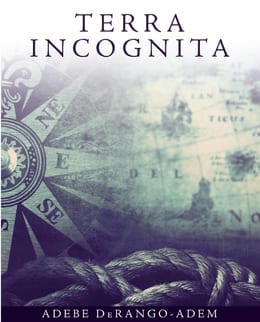

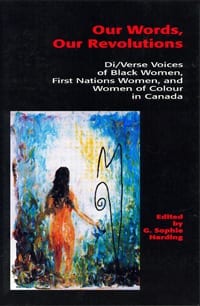
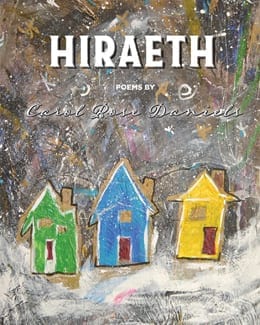
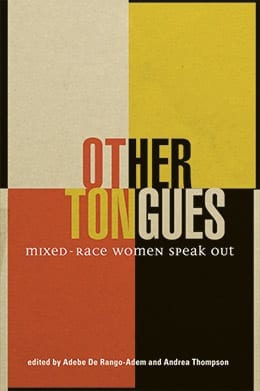

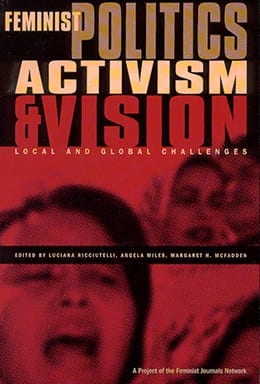
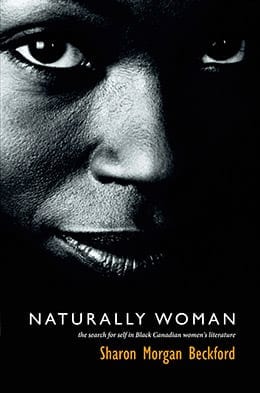
inannaadmin –
Terra Incognita: poems of Adebe DeRango-Adem: a synoptic introduction by Stanley Fefferman
reviewed by OpusOneReview – March 8, 2017
http://opusonereview.com/?p=4177
Adebe DeRango-Adem’s poems are ‘brilliant, cryptic, telegraphic.”* As I read Terra Incognita, the brilliance of her lines is, like what Bob Dylan sings: “She wears an Egyptian ring that sparkles before she speaks.”
Whether there was light before language
matters little;
what we need are not the words
to describe the broken
glass but how the light dances
off the shards.
Adebe’s lines sparkle”before she speaks,” and after she speaks, because they are cryptic–her language is always two, and not-two, images are multi-aspected poetic optical illusions, each hiding/revealing the other: black/white, lover/activist, poet/person, woman/child.
I will not comment on how she manages the dialectic of her personae: she just does. About her engagement with the black/white struggle, or that of the mulatto, or the marron, all the shades of her people, I say that she stands up for them in poems such as “blues for Baraka, in memoriam,” “everyone wants to be DuBois,” or “blood root”(after George Elliott Clarke), a poem that takes its refrain from from “Strange Fruit,” the 1939 anti-lynching song made famous by Billie Holiday and Nina Simone, but was written by a White New York Jewish Communist School-teacher and poet, Abel Meeropol.
Adebe embraces the irony of dialectic:
I suspect all angels
of history are also half-caste,
phantoms that they are, and that history is
Adebe’s poetry is telegraphic because it comes down lines from far away:
All the immense images in me
or of the me I had been,
far-off, in another kind of kinship,
I was once a powerful landscape,
pulsing with the life of the gods.
It is telegraphic because Adebe writes her lines in code, her own poetic Morse:
poise your song into a set of words
that no one knows, musical lines
like blood lines that oppose
that cancel to reveal
that mystify to expose
Her telegraphic fist is recognizeable by it’s playful love of form. Here is a list of titles where she taps out forms: couplets (“what they call paradise”); triplets (“everyone wants to be DuBois,”); quatrains (“dragging sea chests around the bend”); serial-patterned isorhytmic proems (“Oltremare); slightly off internal rhymes (“a faint/shade of smoke”); alliterations (“that our roots are rhizomes”); puns (“I await, unmoored,”); and multi-level wordplay (“multiplicity is what borne the city/ is what borne us, we are still being /birthed again, and up, and away”).
Another sense of the word ‘telegraphic’ that comes from the world of sports applies to her work. I am going to end with a riff or two on that because it’s the coolest aspect of Adebe’s very cool style. In sports, they say that you ‘telegraph’ when you unintentionally alert your opponent to your next move–your pitch or your punch or your shot. Bad idea. However, it’s avery good idea ( if you can do it), to fake a telegram, to set your ‘other’ up to expect you to do a thing, but you shift and pop in something else. Adebe does that a lot. She sets you up for anger, but gives you love, and more.
For example, this volume’s epigraph is by Franz Fanon whose analysis of the psychopathology of racism led him to conclude that violence must have a role in the struggle of decolonization. In the poem “marron inconnu,” Adebe ‘immortalizes’ Louverture, military emancipator of black slaves in Haiti. In the next poem, the aforementioned “everyone wants to be DuBois,” she writes,” but what about the noise? the sound/ of young black boys/ hitting the ground”. The tension in these elements telegraph the reader to expect a forceful reaction. However, Adebe shifts to a more primal ground than the tension she’s feeling: to love, and beyond that, to her inquisitiveness about how she and we who share the ‘star-crossed’ enterprise of cohabiting on this planet connect to each other and to the wholeness of the world:
taut under the moonlight,
and there we are:
lovers,
cross with stars, looking
for a way to read ourselves
into things, into the face
of all this strange,
vast intimacy.
—————
Terra Incognita by Adebe DeRango-Adem
reviewed by Katie Ungard
Shameless Magazine – fall 2016
http://shamelessmag.com/
Adebe DeRango-Adem ‘s third book of poetry, Terra Incognita, is a poetic unearthing of continental history that tears down the walls between race, geography and the national mythologies of Canada and America. DeRango-Adem, a doctoral student at the University of Pennsylvania, seamlessly weaves together personal and collective experiences and histories. From the Middle Passage to Yellowknife, colonization and history of enslavement permeate the stories she tells of fighting for freedom in a land already declared free. Her textured and rhythmic writing is immersive through sight, smell and sound, exploring “unchartered seas/skins unknown/histories/sins/regions unmapped/bodies undocumented.” Terra Incognita is a beautiful and important collection, and a stunning showcase of DeRango-Adem’s talent.
—————
Terra Incognita by Adebe DeRango-Adem
reviewed by Candice James
Canadian Poetry Review – January 25, 2016
http://cprforpoetry.com/index.html
Terra Incognita is a mind-whetting journey of vibrant images, surreal horizons, racial injustice, familial remembrances, and of course, ‘love, sweet love’.
The title poem “terra incognita” is a racial discourse encompassing the beginnings, the middle phases and continuing on to the next phase(s), noting histories undocumented, lives forgotten or erased, texts and testaments buried in obscurity and oblivion; hence the quest to move forward remembered.
The first poem in the book “ex-future” firmly sets the eclectic stage the rest of the pages will stand on, sometimes shouting, sometimes whispering; exposing helplessness ‘and now I let days pass like quiet drops of blood/ becoming rivers without song’; and revealing hope ‘be sea foam sometimes/ and other times be fire/ or better yet be fire/ bringing water.’ The poem “my religion is language” is exquisite in its ability to view the beauty, and not the broken carnage: ‘whether there was light before language/ matters little/ what we need are not the words/ to describe the broken/ glass but how the light dances/ off the shards.’
“black russians” is a beautiful love poem highlighting the poet’s expertise in weaving simple eloquence with surreal imagery in these lines ‘I knew you were the one/ when I saw you walk calmly through the fire/ and scare away the dark.’ DeRango-Adem extols that hope can still be found even in the cross-hairs of gunfire and violence in her poem “everyone wants to be DuBois”. Her hope springs eternal in the following lines: ‘and when I get weak I can/ still plead guilty to still wanting/ to believe in this bleak/ carnival called earth’.
“dragging sea chests around the bend” is a reflection on life’s could have beens and should have beens as compared to what is. The following excerpts from the poem are particularly thought provoking and haunting: ‘Here the promise of night/ is always broken already’ ;// ‘It is the shadow of grace/ that keeps me coming here.’; and // ‘Getting old always means taking leave/ it is often the matter of a train/ leaving/ hunks of metal blowing kisses of exhaust/ exhausted.’ This is one of the most descriptive passages on aging and passing I have ever read. Kudos to DeRango-Adem!
“terra nuova/anchors-aweigh” What a glorious, breathtaking and thought provoking poem. I found myself reading this poem over and over again, throwing my ‘anchors-aweigh and totally immersing myself in the sheer mental joy of participating in this poem and becoming part of the poem itself. These lines resonate loudly ‘you will come to know your compass/ was nothing more than blood/ your journey the attempt to ensure edges/ can touch without bleeding.’
A haunting poem “stormwater” is a crossing and blurring of lines between dimensions of the living, the ghosts, and the half-living who whisper: ‘I am still here/ Trying to remember themselves/ How they were loved as memories/ Dark and westward/ Stitching the horizon/ Are the too human dreams/ Discussed lightly over lemonade afternoons’; and also the lines ‘How many years are there left to cross over/ The ghosts ponder, sighing the way/ Gospels do’ And then we move into “my religion is the sea” expounding that racial injustice with the passage of time will continue its slow crumbling into erasure: sometimes in calm silence; sometimes in vociferous violence. ‘my blood lines are a mix/ of what has been washed away/ and what was once considered a stain.’ In closing I would be remiss if I didn’t address the title poem.
Terra Incognita is a breathtaking and surreal journey through a myriad of mindscapes and landscapes that cause the reader to question and delineate what it means to be human in this day and age. Adebe DeRango-Adem is our guide and her poetry is a trip well worth taking that will long be remembered.
About the Poet: Adebe DeRango-Adem is a writer and doctoral student at the University of Pennsylvania. Her work has been published in various North American sources, including Descant, CV2, Canadian Woman Studies and the Toronto Star. She won the Toronto Poetry Competition in 2005 to become Toronto’s first Junior Poet Laureate. Her debut poetry collection, Ex Nihilo was one of ten manuscripts chosen in the Dektet 2010 competition, using a blind selection process by a jury of leading Canadian writers: bill bissett, George Elliott Clarke, and Alice Major. Ex Nihilo was longlisted for the Dylan Thomas Prize, the world’s largest prize for writers under thirty. She is also the co-editor, alongside Andrea Thompson, of Other Tongues: Mixed-Race Women Speak Out
(Inanna Publications, 2010). http://www.adebe.wordpress.com
About the Reviewer: Candice James is in her 2nd three year term as Poet Laureate of New Westminster, BC. She is past president of both Royal City Literary Arts Society and Federation of British Columbia Writers; a full member of League Canadian Poets; and author of eleven poetry books: the first A Split In The Water” (Fiddlehead Poetry Books 1979); and the most recent are “Merging Dimensions” (Ekstasis Editions 2015). She was awarded the prestigious Bernie Legge Artist Cultural Award 2015 and also the recipient of Pandora’s Collective Citizenship award 2015. Further Info at: Wikipedia https://en.wikipedia.org/wiki/Candice James and http://www.candicejames.com